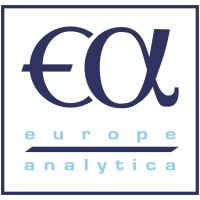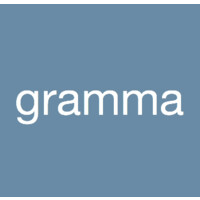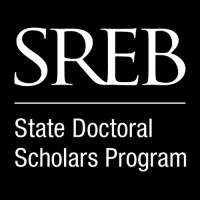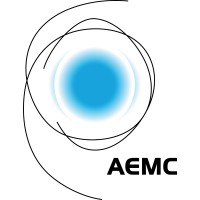Company Details
center-for-science-in-the-public-interest
83
8,380
921
cspinet.org
0
CEN_8820791
In-progress

Center for Science in the Public Interest Company CyberSecurity Posture
cspinet.orgThe Center for Science in the Public Interest (CSPI) is a non-profit health-advocacy group based in Washington, DC, that focuses on nutrition and food safety. CSPI publishes Nutrition Action, one of the nation’s largest circulation health newsletter, and has led efforts that resulted in healthier diets, more-nutritious school foods, safer foods, and more honest food labeling. CSPI provides objective information to the public and represents citizens’ interests before legislative, regulatory, and judicial bodies. CSPI is supported largely by subscribers to Nutrition Action, individual donors, and foundation grants.
Company Details
center-for-science-in-the-public-interest
83
8,380
921
cspinet.org
0
CEN_8820791
In-progress
Between 700 and 749

 CSPI Global Score (TPRM)
CSPI Global Score (TPRM)XXXX



No incidents recorded for Center for Science in the Public Interest in 2025.
No incidents recorded for Center for Science in the Public Interest in 2025.
No incidents recorded for Center for Science in the Public Interest in 2025.
CSPI cyber incidents detection timeline including parent company and subsidiaries

The Center for Science in the Public Interest (CSPI) is a non-profit health-advocacy group based in Washington, DC, that focuses on nutrition and food safety. CSPI publishes Nutrition Action, one of the nation’s largest circulation health newsletter, and has led efforts that resulted in healthier diets, more-nutritious school foods, safer foods, and more honest food labeling. CSPI provides objective information to the public and represents citizens’ interests before legislative, regulatory, and judicial bodies. CSPI is supported largely by subscribers to Nutrition Action, individual donors, and foundation grants.


Europe Analytica is a Brussels-based, leading independent public affairs consultancy offering expert advocacy and advisory services across a diverse range of fields, including digital transformation, data privacy, advertising, sustainability, and the media and creative industries. Leveraging in-dept

How do you create and protect value in a changing climate? Many possible futures lie ahead. Governing bodies need to assess foreseeable risks and opportunities. They need to form reasonable expectations about what the future may hold – so they can make sure it's a desirable one, for their organisat

This page shares information about the Department of Social Service's policies, programs and services, as well as examples of the work our stakeholder partners do across a wide range of social policy areas. This page is administered by the Department of Social Services (DSS). This account is moni

The mission of the SREB-State Doctoral Scholars Program is to increase faculty diversity in the region’s colleges and universities by providing a comprehensive package of support to increase the number of historically underrepresented scholars who earn the Ph.D. and seek careers as faculty members.

Green Alliance’s Legislation and Governance Unit was launched in January 2024 as a unique hub offering expert knowledge sharing and detailed analysis of legislative and regulatory changes relevant to the environment, and providing detailed advice and responses to parliamentarians and officials. The

The Australian Energy Market Commission (AEMC) provides advice to governments on energy market development and is the rule maker for Australian electricity and gas markets. We take a long-term view of what needs to be done to assure consumers of reliable, secure, electricity and gas services at the
.png)
As state and local agencies worry about cybersecurity budget cuts and increased attacks, public officials and researchers try to build a...
OpenAI has completed its recapitalization, simplifying its corporate structure. The nonprofit remains in control of the for-profit,...
Find the best U.S. schools with online cybersecurity bachelor's degrees, and learn how to succeed in an online cybersecurity bachelor's...
Some roles in the cybersecurity field include application and network security, forensics, security architecture and threat intelligence, among many others.
Anthropic is an AI safety and research company that's working to build reliable, interpretable, and steerable AI systems.
CyberCorps SFS scholar Raquel Ana Bush prepares for a career in machine learning and cybersecurity.
Examination Examiner's Guide The Examiner's Guide sets out guidance for an examiner on the NCUA's examination and supervision of credit...
The Department of Homeland Security and its components play a lead role in strengthening cybersecurity resilience across the nation and sectors.
Harper's cybersecurity courses teach cutting-edge skills through hands-on learning that is uniquely designed by industry professionals and taught by...

Explore insights on cybersecurity incidents, risk posture, and Rankiteo's assessments.
The official website of Center for Science in the Public Interest is http://www.cspinet.org.
According to Rankiteo, Center for Science in the Public Interest’s AI-generated cybersecurity score is 744, reflecting their Moderate security posture.
According to Rankiteo, Center for Science in the Public Interest currently holds 0 security badges, indicating that no recognized compliance certifications are currently verified for the organization.
According to Rankiteo, Center for Science in the Public Interest is not certified under SOC 2 Type 1.
According to Rankiteo, Center for Science in the Public Interest does not hold a SOC 2 Type 2 certification.
According to Rankiteo, Center for Science in the Public Interest is not listed as GDPR compliant.
According to Rankiteo, Center for Science in the Public Interest does not currently maintain PCI DSS compliance.
According to Rankiteo, Center for Science in the Public Interest is not compliant with HIPAA regulations.
According to Rankiteo,Center for Science in the Public Interest is not certified under ISO 27001, indicating the absence of a formally recognized information security management framework.
Center for Science in the Public Interest operates primarily in the Public Policy Offices industry.
Center for Science in the Public Interest employs approximately 83 people worldwide.
Center for Science in the Public Interest presently has no subsidiaries across any sectors.
Center for Science in the Public Interest’s official LinkedIn profile has approximately 8,380 followers.
Center for Science in the Public Interest is classified under the NAICS code 921, which corresponds to Executive, Legislative, and Other General Government Support.
No, Center for Science in the Public Interest does not have a profile on Crunchbase.
Yes, Center for Science in the Public Interest maintains an official LinkedIn profile, which is actively utilized for branding and talent engagement, which can be accessed here: https://www.linkedin.com/company/center-for-science-in-the-public-interest.
As of November 28, 2025, Rankiteo reports that Center for Science in the Public Interest has not experienced any cybersecurity incidents.
Center for Science in the Public Interest has an estimated 1,024 peer or competitor companies worldwide.
Total Incidents: According to Rankiteo, Center for Science in the Public Interest has faced 0 incidents in the past.
Incident Types: The types of cybersecurity incidents that have occurred include .
.png)
Angular is a development platform for building mobile and desktop web applications using TypeScript/JavaScript and other languages. Prior to versions 19.2.16, 20.3.14, and 21.0.1, there is a XSRF token leakage via protocol-relative URLs in angular HTTP clients. The vulnerability is a Credential Leak by App Logic that leads to the unauthorized disclosure of the Cross-Site Request Forgery (XSRF) token to an attacker-controlled domain. Angular's HttpClient has a built-in XSRF protection mechanism that works by checking if a request URL starts with a protocol (http:// or https://) to determine if it is cross-origin. If the URL starts with protocol-relative URL (//), it is incorrectly treated as a same-origin request, and the XSRF token is automatically added to the X-XSRF-TOKEN header. This issue has been patched in versions 19.2.16, 20.3.14, and 21.0.1. A workaround for this issue involves avoiding using protocol-relative URLs (URLs starting with //) in HttpClient requests. All backend communication URLs should be hardcoded as relative paths (starting with a single /) or fully qualified, trusted absolute URLs.
Forge (also called `node-forge`) is a native implementation of Transport Layer Security in JavaScript. An Uncontrolled Recursion vulnerability in node-forge versions 1.3.1 and below enables remote, unauthenticated attackers to craft deep ASN.1 structures that trigger unbounded recursive parsing. This leads to a Denial-of-Service (DoS) via stack exhaustion when parsing untrusted DER inputs. This issue has been patched in version 1.3.2.
Forge (also called `node-forge`) is a native implementation of Transport Layer Security in JavaScript. An Integer Overflow vulnerability in node-forge versions 1.3.1 and below enables remote, unauthenticated attackers to craft ASN.1 structures containing OIDs with oversized arcs. These arcs may be decoded as smaller, trusted OIDs due to 32-bit bitwise truncation, enabling the bypass of downstream OID-based security decisions. This issue has been patched in version 1.3.2.
Suricata is a network IDS, IPS and NSM engine developed by the OISF (Open Information Security Foundation) and the Suricata community. Prior to versions 7.0.13 and 8.0.2, working with large buffers in Lua scripts can lead to a stack overflow. Users of Lua rules and output scripts may be affected when working with large buffers. This includes a rule passing a large buffer to a Lua script. This issue has been patched in versions 7.0.13 and 8.0.2. A workaround for this issue involves disabling Lua rules and output scripts, or making sure limits, such as stream.depth.reassembly and HTTP response body limits (response-body-limit), are set to less than half the stack size.
Suricata is a network IDS, IPS and NSM engine developed by the OISF (Open Information Security Foundation) and the Suricata community. In versions from 8.0.0 to before 8.0.2, a NULL dereference can occur when the entropy keyword is used in conjunction with base64_data. This issue has been patched in version 8.0.2. A workaround involves disabling rules that use entropy in conjunction with base64_data.

Get company history
















Every week, Rankiteo analyzes billions of signals to give organizations a sharper, faster view of emerging risks. With deeper, more actionable intelligence at their fingertips, security teams can outpace threat actors, respond instantly to Zero-Day attacks, and dramatically shrink their risk exposure window.
Identify exposed access points, detect misconfigured SSL certificates, and uncover vulnerabilities across the network infrastructure.
Gain visibility into the software components used within an organization to detect vulnerabilities, manage risk, and ensure supply chain security.
Monitor and manage all IT assets and their configurations to ensure accurate, real-time visibility across the company's technology environment.
Leverage real-time insights on active threats, malware campaigns, and emerging vulnerabilities to proactively defend against evolving cyberattacks.




